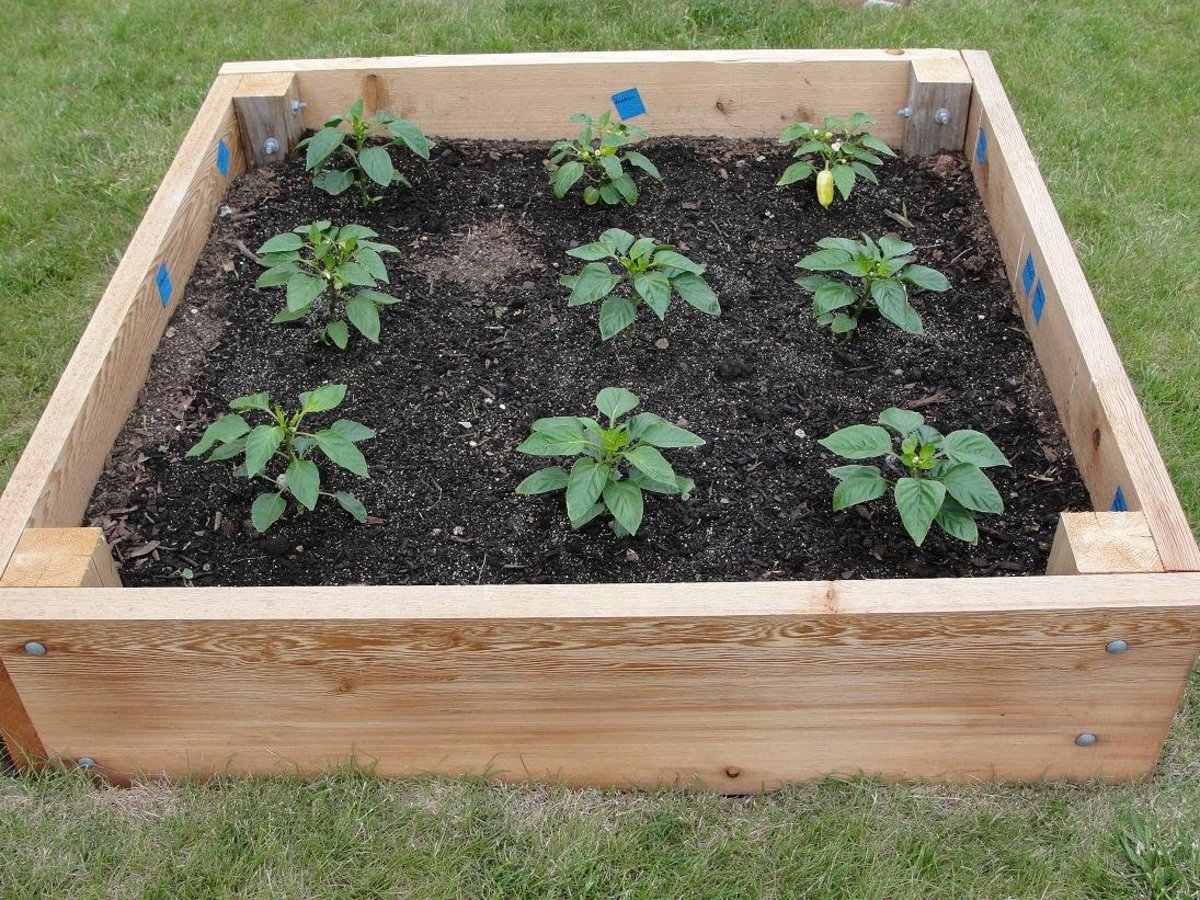
Organic gardening is a great way to maintain balance in the food chain. It is best to plant in full sun. However, some plants will tolerate partial shade. For healthy plants, nutrient-rich soil will be essential. You can also add nutrients to your soil by adding compost or making a compost heap. You should avoid putting in excess water on your plants. Your soil must be free of weeds and disease before you can start planting.
Organic matter can improve soil fertility. You can increase the yield and quality of your soil by adding compost before you plant. It is best that organic matter be added at least one month prior to sowing or planting. This will ensure that you have a soil rich in organic matter that can be used to grow vegetables and fruit. Your soil will be more fertile if it contains worm casts. It is important that you read and follow the instructions.

A soil test is the first step to organic gardening. A soil test will show the basic texture, pH level, and nutrients of the soil. A soil test is necessary because plants that grow poorly in soil are more likely be stressed and susceptible to illness and pests. It is essential that you ensure your soil is healthy and has all the required nutrients. Your plants will grow best in soil that is healthy.
A compost is the best source of vitamins and minerals to your plants. It can contain decomposed leaves, aged manure and other natural materials that will help your plants thrive. Natural fertilizer can also be obtained from livestock farmers for free. Just make sure that you let it mature for at least six months before applying it. The compost should only be used to three inches below the soil. Composite is more toxic to pollinators and beneficial insects than synthetic pesticides.
You can grow an organic garden by first cultivating the soil and then weeding. The soil must be prepared for planting. Now you can prepare your garden. Now you can start preparing your garden. Preparing the soil is the first step to protect your plants from insects. It will help you plants grow stronger, healthier. You can also test your soil before purchasing pesticides.

Organic gardeners do not use synthetic pesticides. Alternative green methods are used to control pests. Plant companion plants alongside your plants to help keep pests away from your garden. A companion plant can help keep your garden pest-free. Pots can be grown in potting mixes that are specifically made for containers. This will help you avoid many problems that could affect your plants' health.
FAQ
Do I have enough space to plant a vegetable or fruit garden in my backyard?
If you don't already have a vegetable garden, you might wonder whether you'll have enough room for one. The answer to that question is yes. A vegetable garden doesn't take up much space at all. It just takes some planning. For example, you can build raised beds just 6 inches high. You could also use containers to replace raised beds. You'll still be able to get plenty of produce in any way.
Can I grow fruit trees in pots?
Yes! Yes, pots are possible to grow fruit trees if space is tight. Your pot should have drainage holes to ensure that the tree doesn't get rotted by excess moisture. You should also ensure that the pot is deep sufficient to support the root ball. This will keep the tree from becoming stressed.
How much light does a tree need?
It all depends on what kind of plant you have. Some plants need 12 hours of direct sun per day. Some prefer 8 hours of indirect sunshine. Vegetables require at least 10 hours of direct sunlight per 24-hour period.
Do I need to buy special equipment to grow vegetables?
You're not wrong. All you need to do is use a shovel, trowels, watering containers, and maybe even a rake.
What is the best vegetable garden layout?
The location of your home will dictate the layout of your vegetable garden. You should plant vegetables together if you live in a city. If you live in rural areas, space your plants to maximize yield.
What length of time can I keep an indoor flower alive?
Indoor plants can survive for several years. To ensure new growth, it's important that you repot indoor plants every few years. Repotting is easy; simply remove the old soil and add fresh compost.
Statistics
- Today, 80 percent of all corn grown in North America is from GMO seed that is planted and sprayed with Roundup. - parkseed.com
- 80% of residents spent a lifetime as large-scale farmers (or working on farms) using many chemicals believed to be cancerous today. (acountrygirlslife.com)
- According to the National Gardening Association, the average family with a garden spends $70 on their crops—but they grow an estimated $600 worth of veggies! - blog.nationwide.com
- Most tomatoes and peppers will take 6-8 weeks to reach transplant size so plan according to your climate! - ufseeds.com
External Links
How To
How do I keep weeds out of my vegetable garden?
The biggest threat to the growth of healthy vegetables is weeds. They compete for water, nutrients, sunlight, and space. These tips will help you prevent them taking over your garden.
-
Take out all flowering plants
-
Be sure to remove any debris or leaves from the base.
-
Mulch
-
Regular water intake
-
Rotate crops
-
Don't allow the grass to grow too long
-
Keep soil moist
-
Plant early
-
Harvest often
-
Make compost
-
Avoid chemical pesticides
-
Grow organic vegetables
-
Buy heirloom seeds
-
Start small
-
Learn about companion planting
-
Be patient
-
Enjoy gardening!